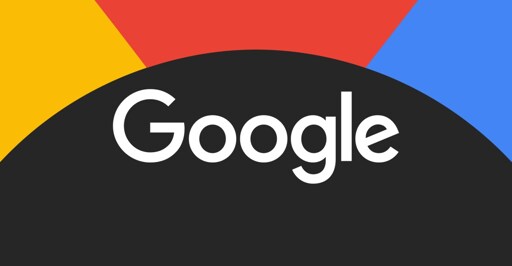For months, Google has maintained that the web is “thriving,” AI isn’t tanking traffic, and its search engine is sending people to a wider variety of websites than ever. But in a court filing from last week, Google admitted that “the open web is already in rapid decline” (with regard to advertising, kinda-sorta)

Yeah it is, and it’s their fault that it is.
Google has no right to say the open web is in decline, when they’re the main cause of it, this is basically them saying, ‘Yeah, we won this stupid war that we started, screw you, peons,’ this comes off like if MS broke WINE and then admitted no one uses desktop Linux anymore, it will have been their faults that hypothetical scenario happened, this is what Google saying the open web is in decline when it’s largely their fault that it is comes off as to me.
Well they don’t get all the credit. Oh, wait, they control how much of the market? Ok, nevermind.
(the DOJ says 91%. Google somehow claims it’s only 10%, to which I literally LOL’d).
This is the nub of the issue. Markets need effective competition. Without it, you get fiefdoms and serfs, and shit products. Antitrust laws have been terrible for decades. Thanks to broken political thinking. Smash up the tech monopolies and not just tech will improve.
Leopards eating everyone’s face these days.
I miss the old internet. Thanks capitalists
You got internet because of capitalists as well.
Came out of government-funded research actually. Back when we could still achieve scientific feats on behalf of our country.
It was private at that time. My point is that it spread so quickly to millions of people worldwide because of capitalists specifically the telecom companies and ISPs stepping in. Without them, the internet could never have developed on such a scale.
The telecom companies got paid by the government to do it, they just as easily could have paid themselves to do it but we as a society are allergic to the idea of taking money out of the hands of poor billionaires and their potential profits
That doesn’t undermine my argument that it was ultimately because of the capitalists that the internet spread in the first place.
We got internet thanks to scientists and engineers. No amount of capitalists, politicians, managers or business people can create an internet. They say ‘here’s some money to make stuff’ and that’s the limit of their involvement.
You could make the argument that nothing can be achieved without being able to dedicate the time required. That was the miracle of the agricultural revolution, we could do something with our time other than gather food. If you said ‘we got the internet thanks to farmers’ that would be indisputable, everything flowed from that. I don’t see why an internet couldn’t emerge in other economic contexts because internet technology depends on physics and those laws transcend any and all economic systems. We already know this because almost every jurisdiction has the internet.
The influence of capitalism on the internet has been a mixed bag. e-commerce: good. App ecosystem: ranging from good to addiction health crisis. Walled gardens and enshitification: bad. Misinformation and radicalisation of political groups: dire, potentially an existential threat.
If you said ‘we got the internet thanks to farmers’ that would be indisputable, everything flowed from that.
And why not? Philosophically, a strong argument can be made that the Agricultural Revolution laid the groundwork for everything we know today, including the internet. I don’t see why admitting that would be a problem as it’s simply the truth.
I don’t see why an internet couldn’t emerge in other economic contexts because internet technology depends on physics and those laws transcend any and all economic systems. We already know this because almost every jurisdiction has the internet.
I never disputed that it couldn’t be done, but it’s still a hypothetical. The reality is that capitalists stepped in, and the internet spread like wildfire. Could it be done in other scenarios? Maybe. But pointing out reality shouldn’t be inconvenient.
The influence of capitalism on the internet has been a mixed bag. e-commerce: good. App ecosystem: ranging from good to addiction health crisis. Walled gardens and enshitification: bad. Misinformation and radicalisation of political groups: dire, potentially an existential threat.
Everything has positives and negatives, everything is a mixed bag. People try to label everything in black and white boxes but reality is mostly gray. Still, it doesn’t change the fact that the internet is in people’s hands because of capitalism.
You could make the same argument about almost anything that is created under our present economic system, it’s void of content. I paid my gas bill so now I can tell my friends that I’m responsible for North Sea gas extraction. People imbibe Joe Rogan’s billionaire koolaid and forget where all this stuff we take for granted comes from.
Capitalism has lifted billions of people out of poverty and that is a minor miracle. Now it is eating itself like an ouroboros. People are upset and it’s not a good time to defend big capital, ask TPUSA and United Health.
Again, you’re missing the point but I guess that’s okay. Let me lay it out simply: I’m not here to defend anything, I’m just here to state the truth. Everything has positives and negatives, and capitalism is no exception. But the fact remains that it’s the reason we have the internet in the hands of ordinary people. Denying this is simply denying reality.
As for the agricultural revolution example you brought it up, not me. And you have to remember, this isn’t some far-fetched comparison like the agricultural revolution; capitalism has a direct link to the spread of the internet.
But hey, maybe we can just agree to disagree there.
Even browsing existing small to medium sized sites has become such a chore, with all these verifications and rate limiters as part of the anti AI scraper effort.
So many cloudflare verification checkboxes. So many Google sign ins. So many cross site cookies and tracking for even basic functionality.
Care about privacy and restrict browsing data even a little? Captcha hell.
Then you get to load and execute 10MB of JavaScript while another 5MB of ad content loads and displays in the background. With the obligatory two dozen API calls to various trackers, counters, taggers, and “optimizers” in the background of course.
Especially since discoverability has pretty much gone down the toilet, between SEO and spam sites.
You’re not going to as easily find a new and interesting website, when the first few results are just computer generated regurgitated text, stuffed with ads by the gill.
Time to bring back the webring and every site having a “links” section.
That shit did work pretty decent. Yet hard to find the initial go to when you’re looking for something specific.
We really need to change the mindset about what the internet experience should be. I think everyone got too used to the idea of centralized services like Google search, Github, Discord, Twitter, reddit, and etc. and that didn’t turn out well. We need to go back to federated protocol based system instead. Let’s go back to the decentralized federated architecture of email, web, irc where no one corporate entity is the sole owner of said service. I think Lemmy and Mastodon are good start but we have to start replace things like Google search, Github, and Discord with decentralized counterparts. We have to learn from our past mistakes and start reconstructing a better internet infrastructure one piece at a time. It will take lot of effort and patience but it’s really the only way out of the mess we put ourselves into by being addicted to simplicity of centralized corporate controlled systems.
Prior to GitHub, everyone just hosted their own Git repositories. The nature of Git is pretty decentralised. And Linux kernel development still uses old-fashioned mailing lists for development co-ordination, rather than something like GitHub. I have heard before someone say the difference between Git and GitHub is similar to the difference between porn and Pornhub.
Prior to Discord, there was IRC.
This makes me think that a big part of the solution is some sort of very low barrier to entry guide or product for self-hosting. Like something even a non-technical person can do. Imagine if it became the norm to have a little always-on device that serves up your personal website, instead of social media accounts…
We need a startup to just make and try to sorta standardize a mini pc product pre-installed with a proxmox-like setup with an easy web interface and self-hosted solutions pre installed. 5-10 apps for main internet service needs like email, social media, content hosting/publishing and personal media libraries.
Give it a cute name like “Web-Pal”, keep it open and Customizable for powerusers, watch the internet become a better place while you’re the household name for devices that are as essential as a router.
They admitted, with obvious glee
You can tell they’re scared of it because they immediately tried to retract/clarify the statement.
Though IDK why they’d care this point since the Supreme Court already declared Google a monopoly and turned around and said they weren’t abusive enough and gave them no punishment.








